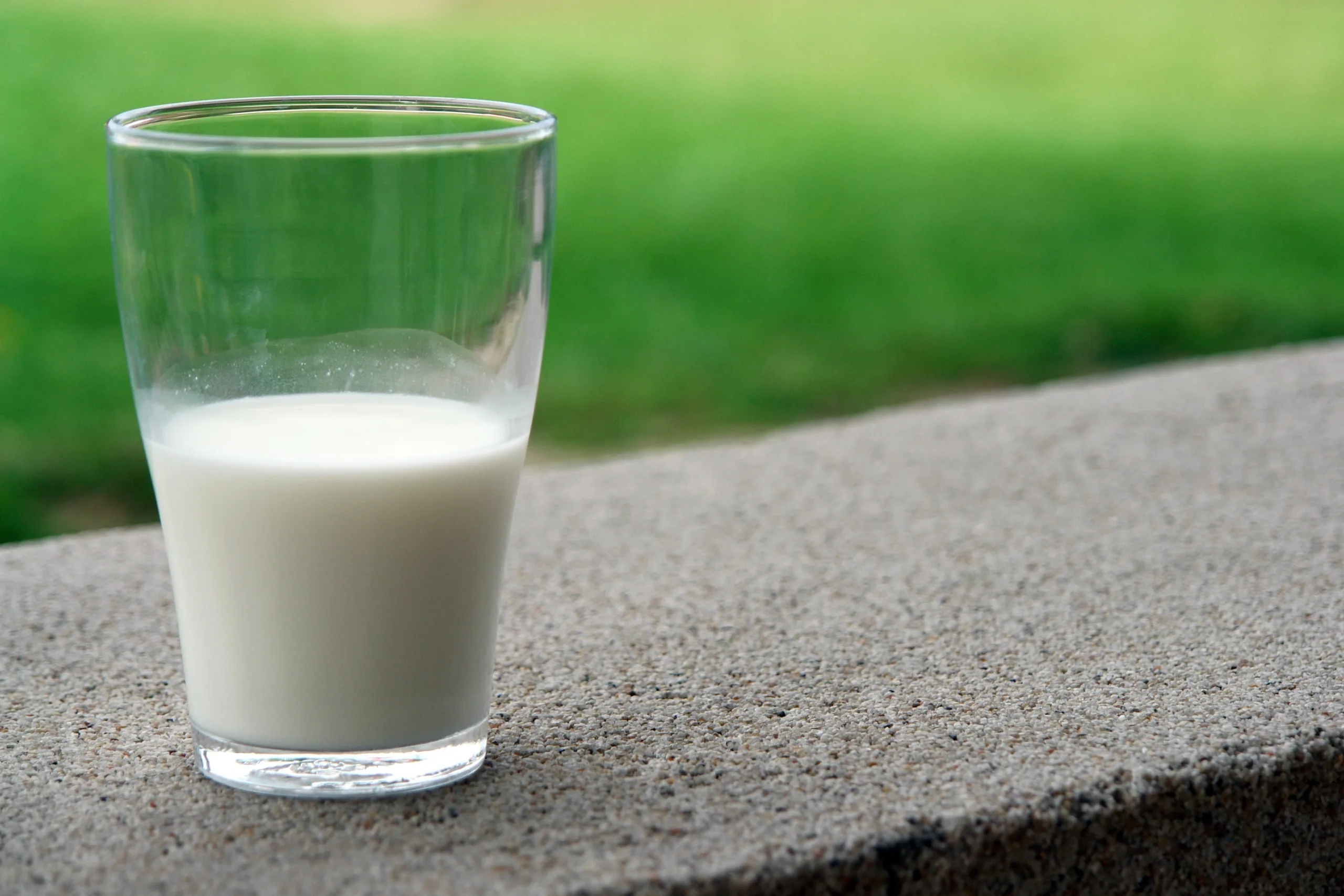Introduction
Setting the Stage
Dairy products like milk, cheese, and yogurt have long been dietary staples for many around the world. In fact, dairy remains one of the most commonly consumed food groups in the American diet. However, when it comes to weight loss, the role of dairy has been hotly debated. Some view dairy products as an unnecessary source of fat and calories that can hinder weight management. Others argue that dairy provides essential nutrients that can aid fat burning and satiety. So what’s the real deal when it comes to dairy and dropping pounds? Let’s delve deeper into the facts.
The Dairy Dilemma
The central question around dairy essentially boils down to this: do dairy products help or harm our ability to lose weight? On the surface, high-fat cheeses and creamy yogurt don’t seem like foods that would promote weight loss. But with nutrients like protein, calcium, and probiotics, dairy may also offer some slimming effects. As is the case with many aspects of nutrition and health, the relationship between dairy and weight is complex. The impact likely depends on the type and amount of dairy consumed, as well as an individual’s dietary needs. By better understanding the diverse components of dairy products, we can unravel the debate around dairy’s influence on weight management.
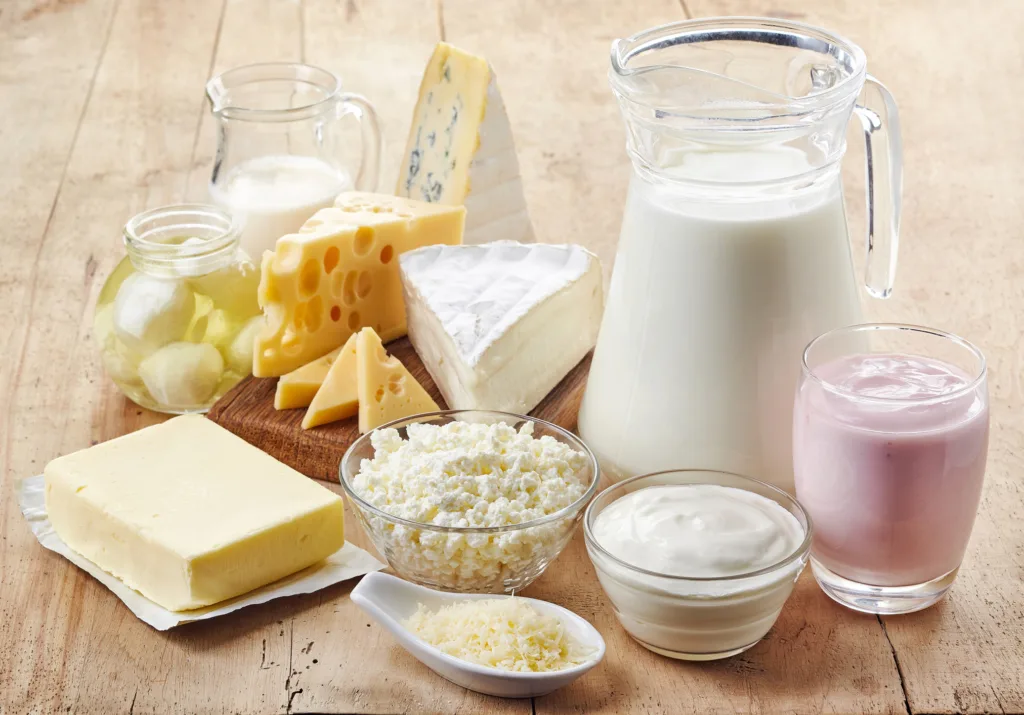
Types of Dairy Products
Diverse Range
Dairy products come in many diverse forms, from fluid milk to solid cheese to smooth yogurt. Milk is often separated into fat contents like whole, 2%, and skim. Cheese ranges from soft and fresh mozzarella to aged, hard cheeses like parmesan. Yogurt varies too, with options like traditional, Greek, Skyr, and kefir. Butter and cream also fall into the dairy category. With such a wide range of products available, dairy can act quite differently in our bodies. The fat, protein, and micronutrient content of dairy foods can all impact weight loss outcomes.
Nutritional Profiles
While all dairy products contain the key components of milk (like whey and casein proteins, calcium, and vitamins) each item has its own nutritional profile. Whole milk contains more fat and calories than skim, providing 146 calories and 8 grams of fat per cup compared to 83 calories and 0.2 grams of fat. Regular yogurt has fewer calories and more protein than Greek yogurt per serving. And hard, aged cheeses are typically higher in fat than soft, fresh cheeses. This diversity means dairy products likely influence weight loss differently based on their varying nutrient contents.
Caloric Content and Portion Control
Counting Calories
Like any food, the calorie content of dairy products matters for weight management. Whole milk, full-fat cheese and yogurt, and items like butter and cream have the highest number of calories. In contrast, nonfat and low-fat dairy options like skim milk and light yogurt are lowest. For example, 1 ounce of cheddar cheese has 114 calories while 1 ounce of part-skim mozzarella has 72 calories. Knowing the calorie differences can help guide smarter dairy choices when aiming to cut calories.
Portion Matters
Beyond choosing lower calorie options, watching your portions is key. Pouring a big bowl of sugary cereal with milk can quickly add up in calories. Limiting your yogurt cup size and sprinkling a tablespoon of shredded cheese instead of a handful makes a difference too. Being mindful of serving sizes when adding dairy to meals and snacks helps keep calories in check.
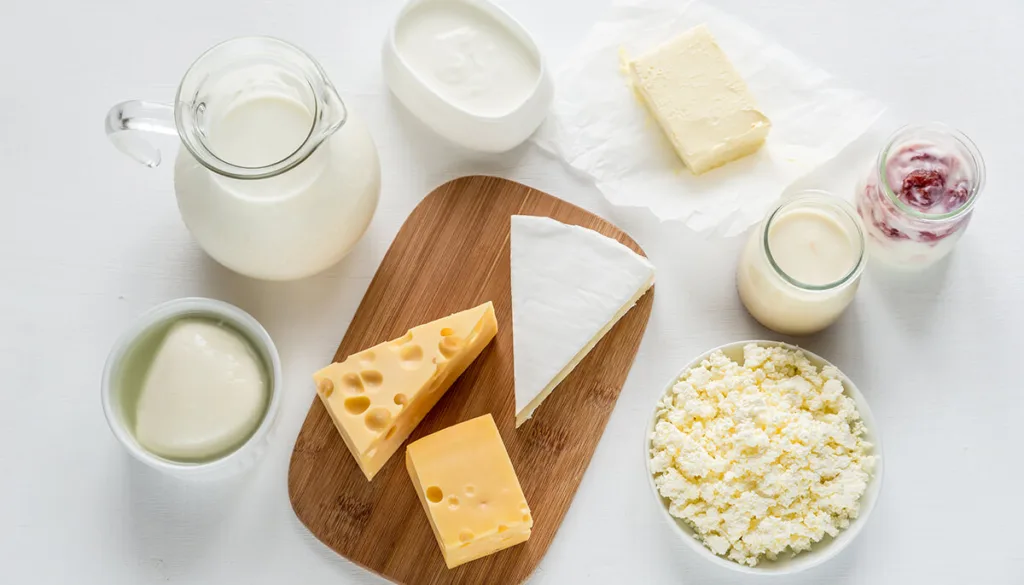
Dairy and Protein
Protein Power
Dairy products deliver high-quality complete proteins with all the essential amino acids our bodies need. Getting enough protein is crucial for building and retaining muscle when losing weight. The whey and casein proteins in dairy may also turn up our fat burning capacity. Research suggests the protein in dairy increases feelings of fullness, helps curb hunger hormones, and reduces subsequent calorie intake compared to lower protein foods.
Satiety Factor
The satiating protein in dairy could boost weight loss in multiple ways. Protein-rich Greek yogurt, cottage cheese, and milk tend to keep us feeling satisfied and full between meals. One study found that adding milk protein to breakfast increased feelings of fullness and resulted in eating fewer calories at lunch. The influence of dairy protein on appetite and cravings suggests it may be an important addition for weight management.
Calcium and Weight Loss
Calcium’s Role
Dairy products are the top source of calcium in most people’s diets. Some research indicates getting enough calcium may also help accelerate fat burning and weight loss. One proposed mechanism is that calcium may inhibit the storage of fat by reducing parathyroid hormone andcalcitriol levels. Higher intake from dairy foods may also promote fat excretion and fat cell apoptosis.
Scientific Findings
Several studies specifically link dairy calcium to improved weight loss results. One analysis of clinical trials found that increasing dairy calcium intake by 1,200mg/day led to an average weight loss of 7lbs more compared to low calcium diets. Other research concludes dairy calcium has a modest effect in promoting fat loss when cutting calories. The results support dairy as a preferred calcium source for optimal fat burning.
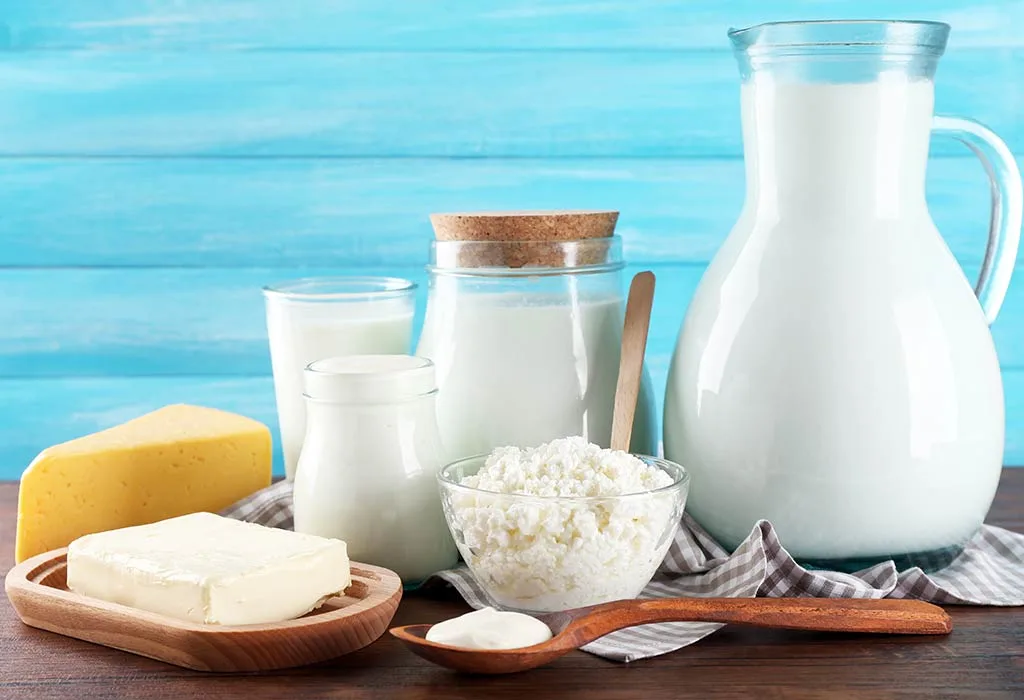
Probiotics in Dairy
Gut Health Connection
Many dairy foods like yogurt and kefir are rich in probiotics, beneficial bacteria that support digestive and immune function. Poor gut health is now linked to obesity and weight gain. The influence of probiotics on gut flora and metabolism of fat and carbs could therefore contribute to easier weight loss.
Evidence-Based Insights
Recent studies find probiotic dairy products may assist with fat loss and promote a healthy body weight. One clinical trial had participants with obesity consume yogurt with probiotics. After tracking their body composition and blood chemistries, they lost 61% more body fat and weight compared to the control group. More research is still needed, but these promising probiotic effects make dairy an asset for gut and overall health.
Lactose Intolerance
Understanding Lactose Intolerance
Lactose intolerance affects about 68% of the global population. Lactose mal-digestion stems from low lactase enzyme levels, causing indigestion and digestive issues after consuming dairy products. Common symptoms include gas, bloating, cramps, and diarrhea that can become barriers to enjoying dairy.
Alternatives for the Lactose-Intolerant
Those with lactose intolerance need not fully avoid dairy. Many lactose-free milk, yogurt, and cheese items remove the lactose sugar while maintaining great nutrition. Consuming smaller portions with meals and opting for hard, aged cheeses higher in fat and lower in lactose can help too. Plant-based milk and yogurt alternatives made from soy, almond, and coconut are other great options. With planning and the right choices, dairy can still be incorporated.
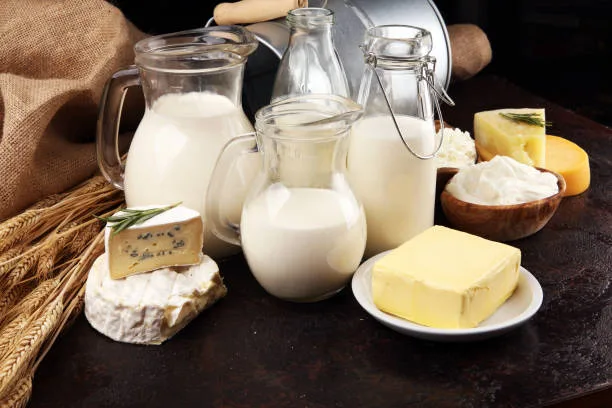
Conclusion
Balancing Act
When examining the diverse components of dairy products, we find the influence on weight loss is not so black and white. Dairy can be beneficial for fat burning and satiety due to its protein, calcium, and probiotic contents. But the potential downsides of calories, fat, and digestive issues for some make dairy consumption a balancing act. Moderating portions and choosing healthier lower fat options are key.
Personalized Approach
In the end, each individual’s response to dairy will vary based on factors like metabolic health, dietary patterns, lactose tolerance, and more. Figuring out how your body responds to different dairy products will help determine its place in your weight loss plan. Being attuned to cues of bloating or increased cravings can indicate dairy may not be the best choice for you currently.
Stay Informed
The relationship between dairy intake and weight management brings much continuing discussion and debate. New research is always emerging and our knowledge evolves. Keep exploring the latest insights from reputable sources. But for optimal health, prioritize an overall balanced diet focused on whole, nutrient-dense foods. The role of dairy should fit within this flexible, personalized approach to nutrition and wellbeing.
Encouragement Section:
Subscribe to Our Free Newsletter
Stay up to date with the latest insights on health, nutrition, weight loss, and wellness by subscribing to our free newsletter. You’ll get our newest articles delivered straight to your inbox bi-weekly. Sign up to receive motivating tips for achieving your health goals plus simple, tasty recipes to boost your energy and keep you feeling your best.
Explore Related Posts
Want to keep unraveling the secrets of food and nutrition for optimal wellbeing? Check out more of our evidence-based posts related to diet, weight loss, digestion, gut health, and feeling your personal best. We’re constantly publishing new content from leading experts exploring the connections between food, nutrition, and vibrant living.
Thank you for reading this post, don't forget to subscribe to our free newsletter
!
